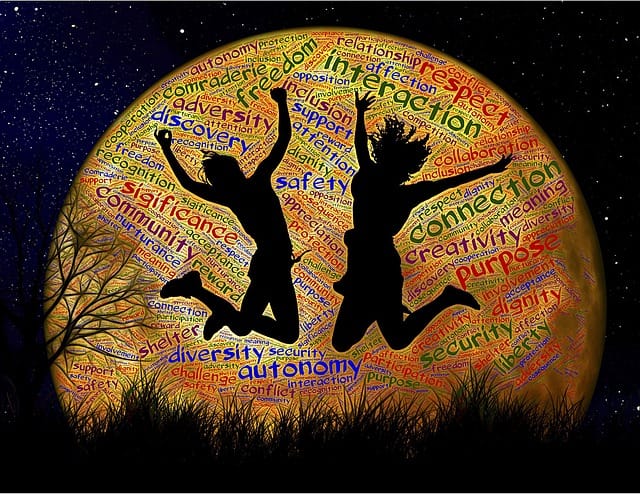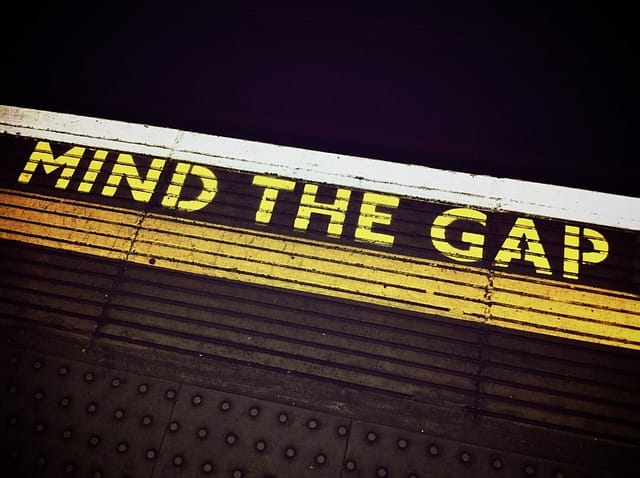×
Are you a youth
or elite athlete?
Partner with me to reach your performance goals and master your mindset.
×


That is the question I asked my husband. His first response is that it’s too “up in the clouds” for him. Knowing that he deals with a lot as a school principal I asked him if he’d give it a try if it made his job easier and he said “Yes!” There needs to be a buy-in with meditation because we are all so busy even if we are busy relaxing and we don’t give our time up easily. We want proof that something is going to work.
Fortunately, there’s more and more research showing the many benefits of meditation. In fact, researchers are finding that meditation can change the brain for the better. In a magazine publication called Mindfulness, An Everyday Guide an article titled “Mapping the Mind, How You Use Your Brain Changes It”, it states “Sarah Lazar is one of several researchers who have demonstrated that certain areas of the brain actually grow larger as a result of an ongoing meditation practice.” Furthermore, Lazar states, “It’s well documented that our cortex shrinks as we get older. It’s harder to figure things out and remember things. But in this one region of the prefrontal cortex, 50-year-old meditators had the same amount of gray matter as 25-year-olds”. www.amglifestylestore.com/p-2193-mindfulness.aspx Additionally, brain wave frequency patterns can be measured during meditation and meditators can have brain activity in a range that facilitates distraction-free learning and cognition. This can have the effect of decreasing stress hormones and make every day stresses easier to manage.
Meditation can also help us become more compassionate towards ourselves and others. Why is this important? Because compassion can help us deal with difficult emotions and bounce back from mistakes and set-backs. Kristin Neff, researcher and author on self-compassion shows the benefit of self-compassion meditations and exercises to decrease negative judgments of self and others. She points out on her website that “With Self-Compassion, we give ourselves the same kindness and care we would a good friend”.self-compassion.org
Pema Chodron, author, reflects on a meditation practice called Tonglen Meditation and it’s benefits. http://pemachodronfoundation.org I’ve found that Tonglen Meditation is a more active meditation that can help us feel more proactive in helping others. A general description of the practice is to take in or sit with the knowing of the suffering of someone else as you take an in-breath and then as you breathe out you wish that this person be free from suffering. Chodron points out that you can do this exercise towards someone you feel neutral toward, then toward someone you have strong love for and eventually for someone you dislike or have conflict with. I’ve found this meditation practice to be helpful in releasing long-term resentment I may have had toward someone. It’s also impactful to do this practice for complete strangers, someone you see on any given day who seems to be suffering.
Now knowing that meditation can change our brains for the better, guide us in being more compassionate towards ourselves and others and help us feel more proactive in helping others and releasing some of our own resentment, why not give it a try? It just might help.

Growing up, I wanted to be the best at everything I did. In high school and college, I pushed myself to excel in school and sports and had good success, but my self-esteem was held on by a thread to my athletic and academic performance. I now see many young teens and young adults today in my practice who feel they have to be perfect, especially to get into a good college. I’m stunned by the requirements expected to get into college now…a 4.0 GPA just doesn’t cut it anymore. This leads to a set-up for teens because if they feel they have to be perfect they will inevitably fail.
How do we teach our kids that it’s actually okay to fail and that doing so may even better prepare them for adulthood? It begins with letting them fail and not trying to ensure they never make a mistake, or as a parent, not over-reacting when they make a mistake. Lord knows, when they are out on their own they will make many mistakes and they need to learn to not give in, not to give up, and more importantly, not to over-react themselves. Many teens tell me that they don’t want to disappoint their parents. Parents need to have conversations with their kids about effort, achievement and self-worth and their kids need to be reminded of their value.
I’ve been inspired by the message and research from Brene Brown on bravery and vulnerability. http://brenebrown.com. She reports that failure actually happens as a result of being brave. In her book Daring Greatly she says,
“Perfect and bulletproof are seductive, but they don’t exist in the human experience. We must walk into the arena, whatever it may be…with courage and the willingness to engage. Rather than sitting on the sidelines and hurling judgment and advice, we must dare to show up and let ourselves be seen. This is vulnerability. This is daring greatly”.
There are three things that we can do to remind teens how to bounce back from setbacks and let go of the need to be perfect. First, it’s important to remember that none of us is defined by what we do! That’s a tough concept to get across when our society rewards performance and excellence above all else. Of course, teens can strive for excellence, but that should not define them. We are complex, layered human beings that do many things and no one thing defines us.
Secondly, encourage them to let go of comparing themselves to others. And boy don’t we all need to do this! This comparison game is a no-win situation. Teens will fare better if they set their own goals and intentions, stay in their own lane, and focus on their own improvement.
Finally, realize there are many paths toward success, not one singular, perfect path. The successful teens I see who change course with college plans, career plans, or end toxic relationships all have an ability to be flexible and give themselves permission to change their course. They don’t get stuck in forcing a path. Consequently, their self-talk is less negative if they make a mistake or hit an obstacle along the way.
So, let’s all go out and fail!! Sounds silly but in reality, it may be the best thing that can happen!
Special note: Learning the practice of ‘mindfulness’ is a great way to work through the stress or anxiety of failure and discover new and different paths available to you. Why did you fail? Did you really fail, or did you discover something great and true about yourself, like something you thought you wanted wasn’t what you wanted at all?
Learn a bit about mindfulness HERE and consider giving it a try and then sharing it with your teen!

The Mindful Athlete: Secrets to Pure Performance by George Mumford has been an awesome read for me.
As a high school and college basketball player I was immediately drawn to Mumford’s approach, as well as knowing he effectively worked with highly successful NBA players (Michael Jordan, Kobe Bryant) and elite athletes. He promotes a way of being mindful both in and out of the sports arena.
I frequently look for parallels between the mental aspects of athletic success and life success, and have found that mindfulness can help improve your sports game and your general attitude towards life.
What is mindfulness? It’s a way of being present, or noticing whatever one is thinking or feeling without judging it as good or bad. Certainly, it’s important that the athlete not spiral into a negative mental state after making a mistake or after an injury. Furthermore, as a psychotherapist, I also see how practicing mindfulness is helpful for my clients experiencing depression and anxiety by allowing them to be less reactive to their emotions and more empowered to choose a positive solution. We can practice mindfulness in many ways …ways that don’t take up a lot of time. I think both athletes and non-athletes alike can practice mindfulness through mediation, quietly noticing and taking in sights and sounds, and heightening awareness of negative self-talk.
Mumford clarifies how he instructs mediation. Specifically, one is to sit quietly, close their eyes or look downward and focus on their breath, especially the space between the in-breath and the out-breath. I like to think of that space as the sweet spot and the more you can hang out there the more peaceful you can feel. Of course, we will get off track and may start to obsess about something, or anything, but focusing back on the breath can help get us out of the obsessive loop. It helps to practice this and get comfortable cycling through a number of times to get the benefit of being present or mindful of the moment.
Quietly noticing sights and sounds is another great way to be mindful. We are so busy with our lives that we rarely stop to really look at something or listen, just noticing and again, without judging it as good or bad. I challenge you do this at least once a day and see if your reaction to stressful life events is more manageable and less negative or impulsive. It’s important though to practice mindful listening or mindful sight for several seconds, preferably a minute or two at a time to let the experience sink in.
Finally, I see how having a daily practice of mindfulness helps one to be more aware of negative self-talk and consequently more aware of intervening on it. If we notice we are putting ourselves down, or labeling ourselves in some way …or obsessing over a mistake we made, we can then take a step back from that and either challenge that thought, or we can remind ourselves that all thoughts and feelings come and go and the negative feelings will also pass. As a result, we become less reactive to our own minds, our own thoughts and consequently have greater clarity on what to do. Both the athlete and non-athlete alike can benefit from slowing down, taking a breath and just noticing without reacting. We can always return to this practice again and again.
Athletic success is important, but living a life of awareness can lead to true success.
What happens when we want to avoid failing and no amount of mindfulness seems to help? I will address this further in my upcoming blog on the topic of failure!
Recent Comments